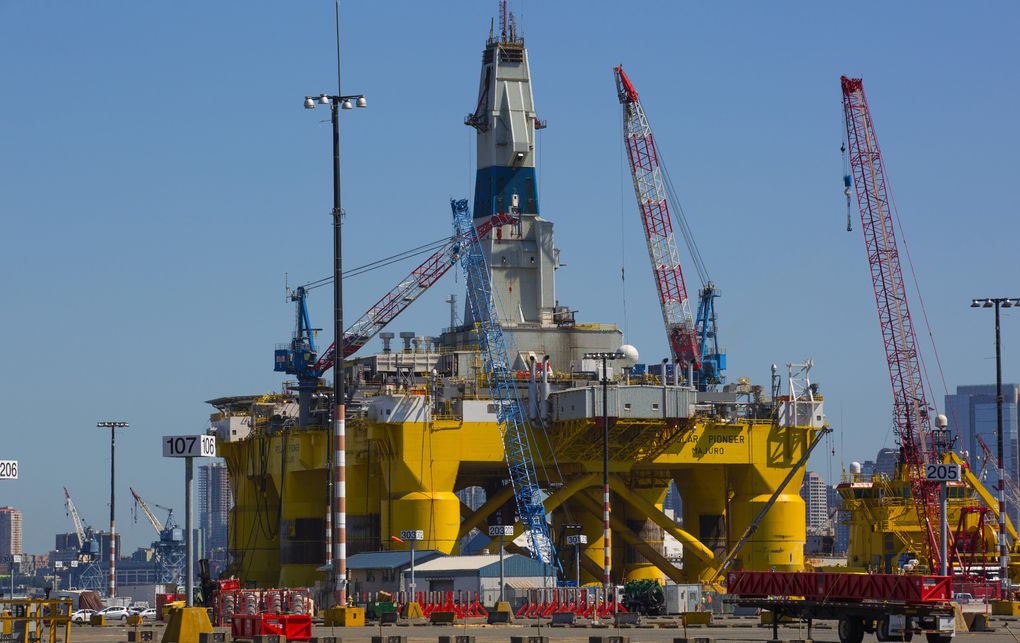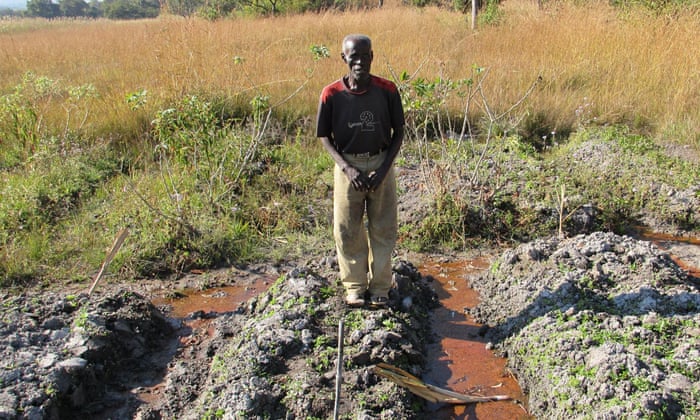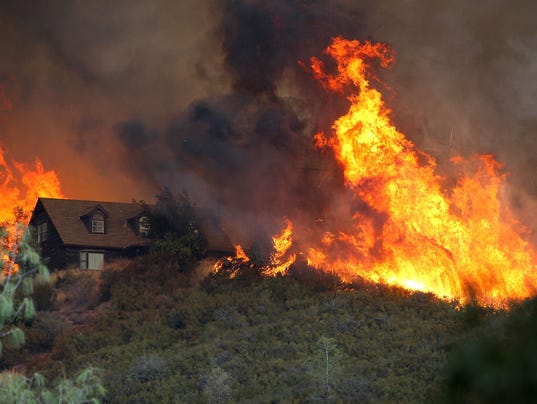Federal officials say July was Earth’s hottest month on record, smashing old marks.
July’s average temperature was 61.86 degrees Fahrenheit, beating the previous global mark set in 1998 and 2010 by about one-seventh of a degree. That’s a large margin for weather records.
Records go back to 1880, but nine of the 10 hottest months on record have happened since 2005. The first seven months of 2015 are the hottest January-to-July span on record.
Feeling the heat: Earth in July was hottest month on record
A decade after Katrina, are America's flood estimates dangerously wrong?
In the Mississippi River town of Hannibal, Missouri, time apparently flies.
In 2013, Hannibal had a 50-year flood, a high-water event only expected once every 50 years. In 2014, it had another 50-year flood. Somehow, the river has reached its 10-year flood stage in Hannibal—which should happen about once a decade—in seven of the last eight years. And if the years seem to be passing with unusual speed, so do the centuries. Hannibal had a 200-year flood in 2008, considerably less than 200 years after an even larger deluge in 1993.
Evidence is mounting that Hannibal’s statistical anomalies have been caused not by glitches in the space-time continuum, but by a combination of floods getting worse and government estimates of flood risks being wrong.
How Dick Cheney Kicked off an Era of Cancer Clusters and Eco-Disasters from Fracking
 This past Saturday, marked a notable 10th anniversary. But it was certainly nothing to celebrate. Ten years ago, President George W. Bush signed the Energy Policy Act of 2005. The giant energy bill included massive giveaways for the fossil fuel, nuclear and ethanol industries and provided only token incentives for renewables and improved energy efficiency.
This past Saturday, marked a notable 10th anniversary. But it was certainly nothing to celebrate. Ten years ago, President George W. Bush signed the Energy Policy Act of 2005. The giant energy bill included massive giveaways for the fossil fuel, nuclear and ethanol industries and provided only token incentives for renewables and improved energy efficiency.
But the most infamous piece of the law was what is now commonly known as the “Halliburton Loophole,” an egregious regulatory exemption that ushered in the disastrous era of widespread oil and gas fracking that currently grips our nation.
Feds allow Shell to drill for oil in Arctic Ocean off Alaska
 The federal government on Monday gave Royal Dutch Shell the final permit it needs to drill for oil in the Arctic Ocean off Alaska’s northwest coast for the first time in more than two decades.
The federal government on Monday gave Royal Dutch Shell the final permit it needs to drill for oil in the Arctic Ocean off Alaska’s northwest coast for the first time in more than two decades.
The Bureau of Safety and Environmental Enforcement announced that it approved the permit to drill below the ocean floor after the oil giant brought in a required piece of equipment to stop a possible well blowout.
Air pollution increases allergenicity of ragweed pollen
 Exposure to nitrous oxide exhaust gases in the environment makes the common ragweed pollen more allergenic, according to new research.
Exposure to nitrous oxide exhaust gases in the environment makes the common ragweed pollen more allergenic, according to new research.
Pollen allergies affect about 50 million people in the United States, and are the main cause of hay fever and other allergies.
"After studies have already shown that Ambrosia growing along highways is clearly more allergenic than Ambrosia plants growing away from road traffic, we could provide a reason for this," said Dr. Ulrike Frank, a researcher at the German Research Center for Environmental Health at Helmholtz Zentrum München, in a press release. "Since in nature and along roads hundreds of parameters could play a role, until now the situation was not entirely clear."
Climate fight shifts to courts
States, energy companies and business groups are preparing to sue the Obama administration over its new climate rule, viewing it as their bet shot at stopping the regulations while President Obama is still in office.
With Congress largely powerless to stop the rule, opponents of Obama’s push say the court system is their only hope at beating back the carbon limits until a new president takes over the Oval Office in 2017.
World's Glaciers Melting At Fastest Rate Since Record-Keeping Began
The world's glaciers have melted to the lowest levels since record-keeping began more than 120 years ago, according to a study conducted by the World Glacier Monitoring Service that was released on Monday.
The research, published in the Journal of Glaciology, provides new evidence that climate change has spurred the rapid decline of thousands of the world's ice shelves over the past century. The first decade of the 21st century saw the fastest loss of ice since scientists began tracking it in 1894 -- and perhaps in recorded history, WGMS reported.
‘I drank the water and ate the fish. We all did. The acid has damaged me permanently’
 You can’t see the old Chingola copper mine, with its smelter and refinery, from the village of Shimulala. It’s miles away, beyond 300ft-high hills of waste tailings, the leach plant, the main pollution control dam and the 1,600ft-deep open pit that is one of Africa’s largest holes.
You can’t see the old Chingola copper mine, with its smelter and refinery, from the village of Shimulala. It’s miles away, beyond 300ft-high hills of waste tailings, the leach plant, the main pollution control dam and the 1,600ft-deep open pit that is one of Africa’s largest holes.
But you can smell and taste the pollution from the biggest copper mine in Africa. If you pump a glass of water from the borehole outside the little church in Shimulala, you will see it is bright yellow, smells of sulphur and tastes vile.
Wildfires prompt Brown to declare state of emergency in California
 Gov. Jerry Brown declared a state of emergency for all of California in the wake of at least 18 wildfires that killed one firefighter and drove hundreds of people from their homes.
Gov. Jerry Brown declared a state of emergency for all of California in the wake of at least 18 wildfires that killed one firefighter and drove hundreds of people from their homes.
California's record drought, now in its fourth year, has "turned much of the state into a tinderbox," he said.
The emergency declaration, which included the activation of the California National Guard, will speed up help for thousands of firefighters, Brown said Friday.
More Articles...
Page 21 of 156

 Environmental News Archive
Environmental News Archive


































